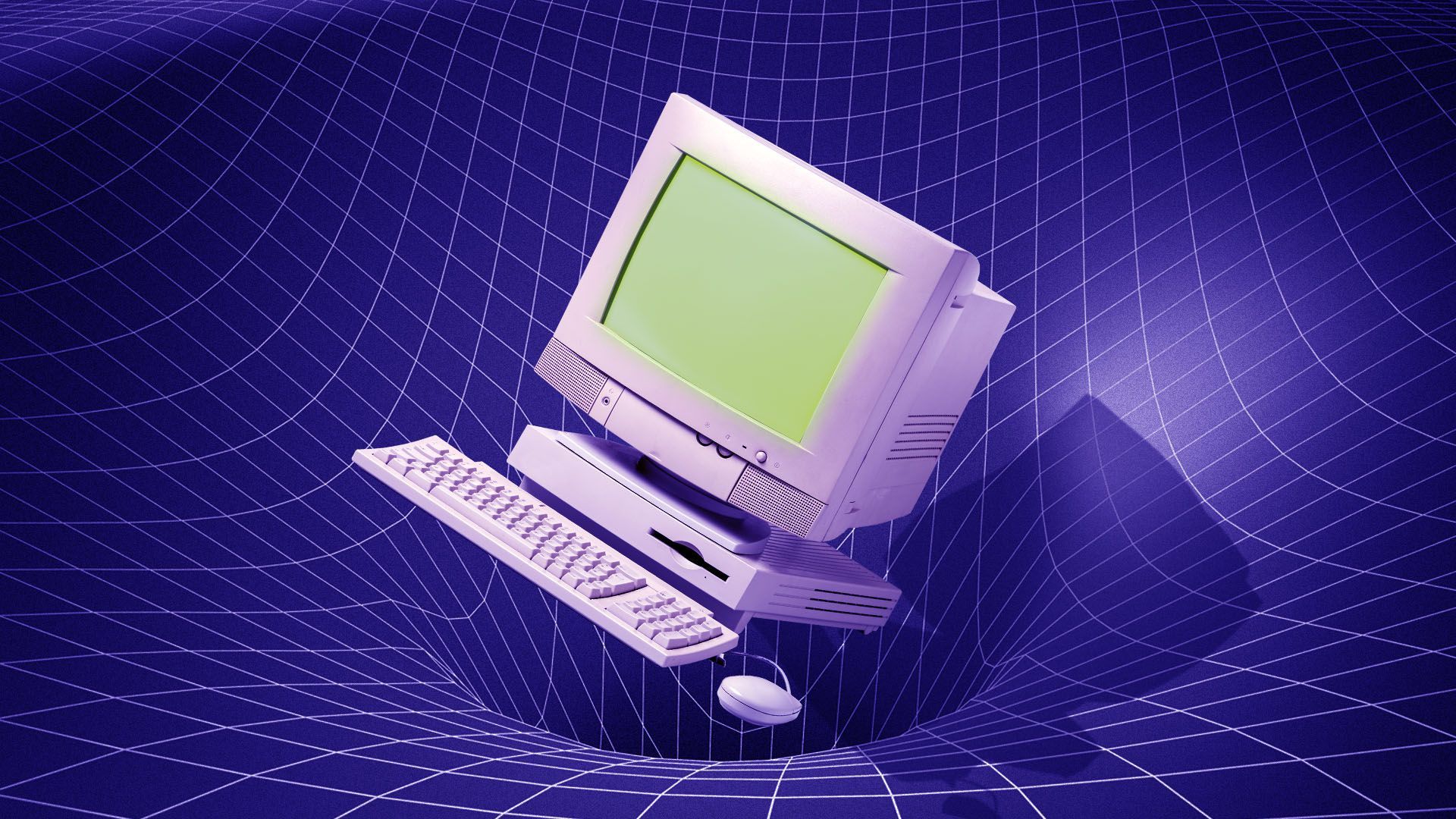Why quantum computing matters
Add Axios as your preferred source to
see more of our stories on Google.

Illustration: Sarah Grillo/Axios
A new government initiative will direct hundreds of millions of dollars to support new centers for quantum computing research.
Why it matters: Quantum information science represents the next leap forward for computing, opening the door to powerful machines that can help provide answers to some of our most pressing questions. The nation that takes the lead in quantum will stake a pole position for the future.
Details: The five new quantum research centers — established in national labs across the country — are part of a $1 billion White House program announced Wednesday morning that includes seven institutes that will explore different facets of AI, including precision agriculture and forecast prediction.
- "The future of American prosperity and national security will be shaped by how we invest, research, develop and deploy these cutting-edge technologies today," said U.S. chief technology officer Michael Kratsios.
How it works: While AI is better known and increasingly integrated into our daily lives — hey, Siri — quantum computing is just as important, promising huge leaps forward in computer processing power.
- Quantum computing harnesses the esoteric workings of quantum mechanics. While conventional or classical computers manipulate binary bits — the electrical or optical pulses representing 1s and os — to perform computation, quantum computers use what are known as qubits.
- Qubits are subatomic particles like electrons or photons, and thanks to quantum mechanics, they can represent numerous possible combinations between 1 and 0. The ability to exist simultaneously in multiple states is called superposition, and it means a quantum computer — unlike a classical one — can compute huge numbers of potential outcomes simultaneously.
- Pairs of qubits can be entangled, meaning that they exist in a single quantum state, and changing the state of one qubit in the pair will instantaneously alter the state of its partner, even if they're separated by vast distances. While classical computers only double their processing power when they double their bits, entanglement means that quantum computers exponentially increase their power as they add qubits.
Of note: Albert Einstein famously hated the concept of entanglement, describing it as "spooky action at a distance." But the idea has held up over decades of research in quantum science.
Quantum computers won't replace classical ones wholesale — in part because the process of manipulating quantum particles is still highly tricky — but as they develop, they'll open up new frontiers in computing.
- Cryptography: The sheer processing power of quantum computers means that at some point in the near future, they'll be able to unlock all known digital encryption — which is why there's an international race to develop post-quantum cryptography.
- Chemistry: At its foundation, nature is the process of quantum forces, but classical computers don't have the power to simulate matter at the subatomic level. Quantum computers do, which means they can be used to simulate the actions of molecules in order to break some of chemistry's toughest challenges, like making better batteries.
- Quantum internet: Entanglement can be leveraged to send information via quantum communication, which promises to be far faster and more secure than current methods.
What they're saying: "Quantum is the biggest revolution in computers since the advent of computers," says Dario Gil, director of IBM Research. "With the quantum bit, you can actually rethink the nature of information."
- IBM is deeply involved in the new quantum science centers, and it developed the world's first cloud quantum computer.
The catch: While the underlying science behind quantum computers is decades old, quantum computers are only just now beginning to be used commercially.
- The quantum state of a qubit is extremely fragile, and slight changes in vibration or temperature can cause them to lose their quantum state in a process called decoherence. As a result, quantum computers tend to be more error-prone than their classical ancestors.
What to watch: Who ultimately wins out on quantum supremacy — the act of demonstrating that a quantum computer can solve a problem that even the fastest classical computer would be unable to solve in a feasible time frame.
- Last year, Google claimed to have achieved quantum supremacy, performing a computation on a quantum computer in 200 seconds that the company claimed would have taken a classical supercomputer 10,000 years to complete. Its competitor IBM, though, cast doubt on the claim.
- What to actually watch: The recent sci-fi show "Devs," where an all-powerful quantum computer is capable of perfectly predicting the future, which as far as I know is not yet on the menu.
The bottom line: The age of quantum computers isn't quite here yet, but it promises to be one of the major technological drivers of the 21st century.
